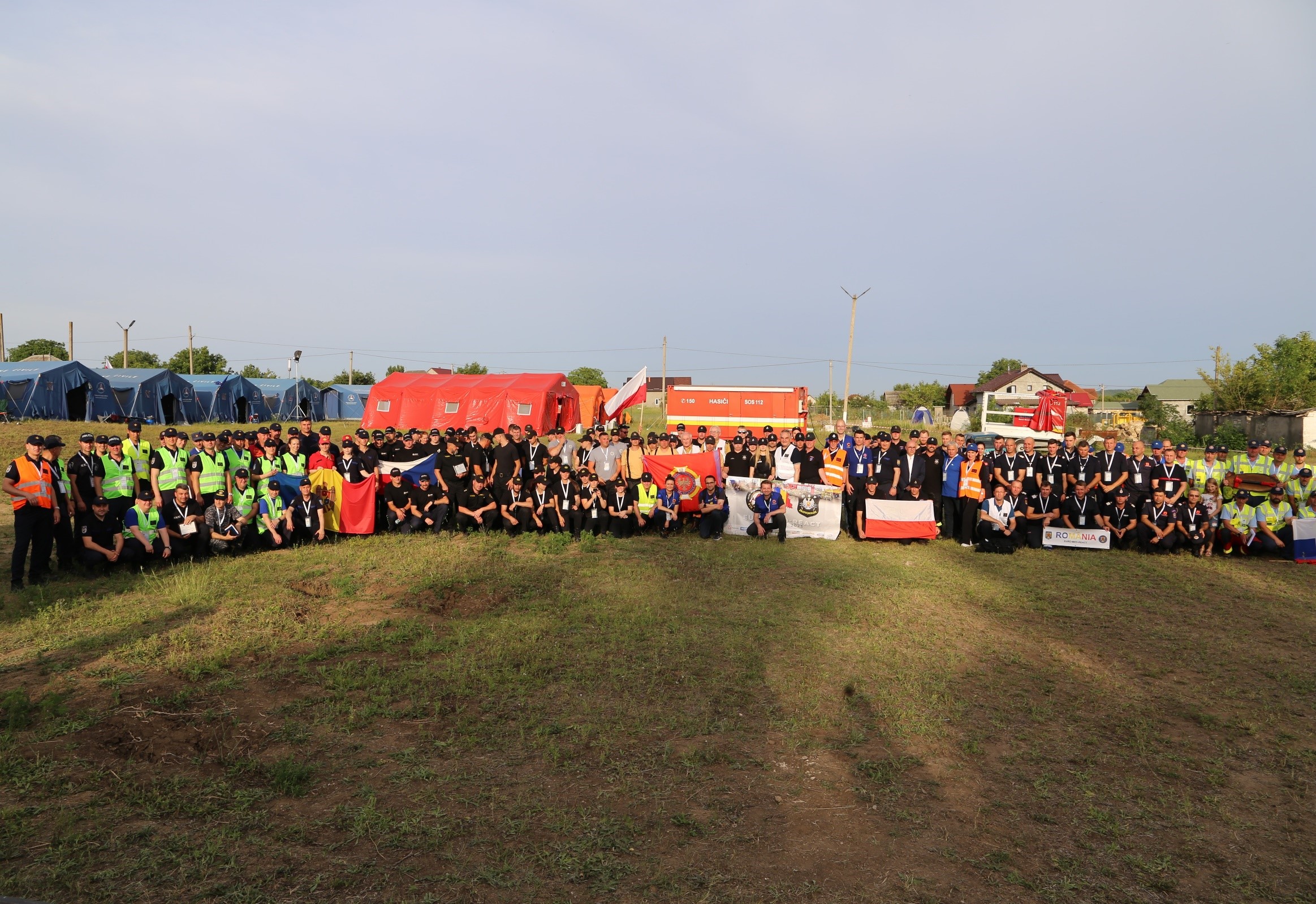The project's comprehensive approach included Table Top Exercises (TTX) and Full-Scale Field Exercises (FSX), significantly contributing to national civil protection and regional and international cooperation. The inclusion of Jordan and Palestine in EURO-MED-REACT underlines its significance in regional cooperation. Furthermore, EURO-MED-REACT contributed to societal resilience, incorporating ICCSS approaches to enhance community involvement and preparedness. The project's comprehensive strategy and innovative methods make it a model for future civil protection initiatives.
EURO-MED-REACT has effectively addressed the challenges of civil protection in Eastern Europe and the Middle East. By enhancing national capacities and fostering international cooperation, the project facilitated resilient responses to future emergencies. The comprehensive strategy and innovative methods of EURO-MED-REACT, emphasizing regional inclusivity and collaboration, make it a model for future civil protection initiatives.
EURO-MED-REACT core activities, membership, achievements and impacts
I. EURO-MED-REACT Context and Overall Objectives: EURO-MED-REACT addressed the urgent need for strengthened civil protection in the face of Russian military aggression against Ukraine. This situation heightened the risk of chemical, biological, radiological, nuclear (CBRN) incidents, and natural disasters. The project aimed to enhance national civil protection in Ukraine and Moldova, through a series of exercises, trainings and best practices exchanges. Thus it assisted these countries with the UCPM and Knowledge Network, and fostered cooperation with the EU, neighboring countries, and international organizations. The project elevated civil protection as a key element of national security, public health and societal resilience.
II. Holistic stakeholder engagement and whole-government approach: The EURO-MED-REACT project brought together a diverse group of members to address civil protection challenges effectively. This consortium included government and emergency response entities: the General Directorate of the Fire Rescue Service of the Czech Republic (HZSCZ), the General Inspectorate for Emergency Situations of the Ministry of Internal Affairs of the Republic of Moldova (DSMD), host of the Full Scale Field Exercise (FSX), the General Inspectorate for Emergency Situations of Romania (GIES), and the Ministry of Interior of the Slovak Republic Section of Crisis Management.
Academic insights were provided by the Lviv State University of Life Safety, Ukraine (LSULS), host of table Top Exercise (TTX), enriching the project with research and educational expertise, training and exercise capacities. The Fire Safety Works and Services Association in Lithuania (PDPA) contributed practical industry solutions and resources. From the Middle East, ASEZA – Aqaba Special Economic Zone Authority, Jordan, played a crucial role, offering a unique regional perspective.
An active engagement of Volunteer Fire Service Brigades of Poland enabled testing and development of volunteer civil protection within UCPM.
The consortium was expertly led by the International Centre for Chemical Safety and Security (ICCSS) in Warsaw, Poland, ensuring a cohesive and effective approach.
This collaboration among local communities, governmental bodies, academic institutions, and businesses fostered a shared commitment to public safety and security and societal resilience. This inclusive and comprehensive strategy enabled EURO-MED-REACT to address a wide range of civil protection challenges effectively, demonstrating the power of collaborative efforts in enhancing safety and preparedness.
III. Work Performed and Main Achievements
The project conducted civil protection exercises in Ukraine (table Top Exercise (TTX), December 2022) and Moldova (Full Field Scale Exercise (FSX), July 2023). Key achievements include the development of national response plans in line with UCPM standards, enhanced international cooperation, improved CBRN emergency preparedness, alignment with international obligations like UNSC Resolution 1540, and the effective implementation of the ICCSS approach. This inclusive strategy involved multiple stakeholders, including local communities, governments, and industries, and established partnerships with EU countries and international organizations.
IV. Results and Impacts of EURO-MED-REACT
The EURO-MED-REACT project made significant strides in enhancing civil protection and aligning Moldova and Ukraine with the Union Civil Protection Mechanism (UCPM), thereby improving readiness for CBRN emergencies. This initiative led to notable policy and practical achievements:
- Development and Implementation of Guidelines for Civil Protection Students and Teachers in Countries from Outside EU: EURO-MED-REACT established comprehensive guidelines for civil protection students and teachers in countries outside the EU. These guidelines focus on training related to UCPM and its activation in a testing environment, offering a valuable resource for those involved in civil protection education and exercises.
- Establishment of the Regional Exercise and Training Network in Civil Protection and Societal Resilience: This network, initiated by EURO-MED-REACT members and partners, aims to bolster disaster response capabilities and societal resilience in Eastern Europe, the Middle East, and beyond. It promotes cooperation among various stakeholders, integrating societal resilience into every aspect of disaster management. The ICCSS plays a leading role in coordinating the network's activities.
- Focus on Societal Resilience: Building on the foundations laid by EU-CHEM-REACT, NET-CBRN-REACT, and EURO-MED-REACT projects from 2017-2023, the emphasis on societal resilience has been critical. These efforts have prepared communities for various hazards, enhancing their adaptability and resilience.
- Active engagement of Volunteer Fire Service capacities: The active engagement of Volunteer Fire Service Units in the EURO-MED-REACT Full-Scale Exercise highlighted their indispensable role in civil protection, demonstrating rapid response capabilities, specialized firefighting and medical expertise, local knowledge, and resource augmentation, thereby enriching the overall disaster response toolkit. Recognizing their effectiveness, it becomes crucial to consider their integration into broader civil protection frameworks such as the Union Civil Protection Mechanism (UCPM) and the European Civil Protection Pool (ECPP). This integration would not only enhance local response capacities but also bridge existing skill gaps, ensure community-centric disaster management, and expand the resource pool, thereby strengthening the overall efficacy of civil protection strategies at both local and wider levels.
- Engagement of Jordan and Palestine: The inclusion of Jordan and Palestine in EURO-MED-REACT highlights its significance in regional cooperation. Engaging these countries fosters a more inclusive and robust civil protection network, enhancing preparedness and promoting stability in a geopolitically sensitive area.
For further details on EURO-MED-REACT, please visit EURO-MED-REACT Website: https://www.iccss.eu/euro-med-react

